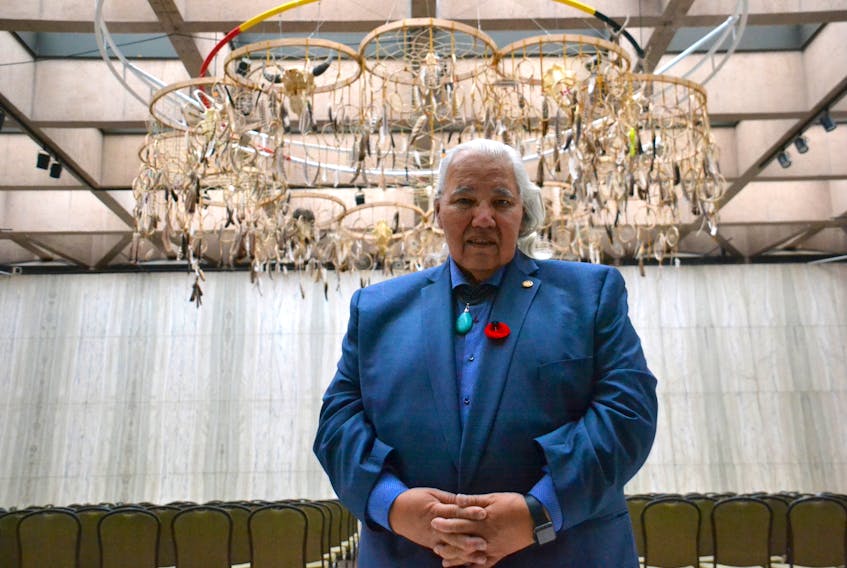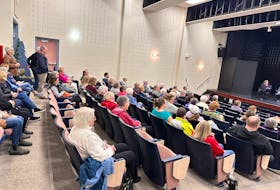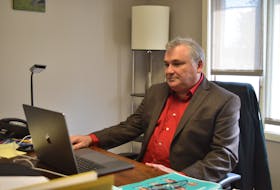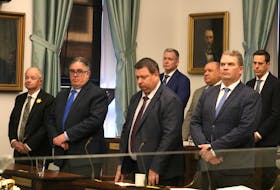CHARLOTTETOWN, P.E.I. — Most Islanders are well acquainted with the story of the 1864 Charlottetown Conference, the meeting that laid the groundwork for Confederation.
But Senator Murray Sinclair believes Canadians can do better when it comes to telling the full story. The truth, he said, involves telling the story of the people who were left out.
"The one thing people fail to recognize is that Indigenous people were not included in the dialogue of Confederation," Sinclair told The Guardian on Thursday.
"A better way is to tell a more complete story (is needed). And the more complete story includes Indigenous people and includes what was going on with Indigenous people."
Sinclair is this year’s recipient of the Symons Medal, a prestigious award presented to an individual who has made an extraordinary contribution to Canadian life. Raised on the St. Peter’s
Indian Reserve, near Selkirk, Man., he went on to become the province’s first Indigenous judge and was a chief commissioner of the Truth and Reconciliation Commission.
Along with accepting the award at the Confederation Centre today, Sinclair will be delivering a public lecture, entitled “Confederation – We could have done better.”
Sinclair said Canadians should ask why treaties signed with Indigenous people prior to 1864 did not include more provisions focused on self-government, property rights or claims.
He said there is historical evidence that Indigenous people believed the Royal Proclamation of 1763, which included protections for unceded Indigenous territory, would be upheld. But the 1867 British North America Act, the founding document of Confederation, gave the new federal government jurisdiction for “Indians and lands reserved for Indians".
Unresolved land claims continue to be the subject of legal battles throughout the country.
"The Indigenous perspective from all of that process still has to be told. And it hasn't been told yet," Sinclair said.
Sinclair also said Canada’s international obligations to indigenous people and the crises faced by many indigenous communities did not receive ample attention during the recent federal election.
"All political parties largely ignored the fact that Canada's reputation internationally is suffering quite dramatically," he said.
"They're giving words to their views, but there's no action to their words."
Things to know about Murray Sinclair:
- First Indigenous judge appointed in Manitoba
- Second Iindigenous judge appointed in Canada
- Co-chairman of Aboriginal Justice Inquiry in Manitoba
- Chairman of the Truth and Reconciliation Commission
- Adjunct professor of law, University of Manitoba
- Appointed to Canadian Senate in 2016
As a Senator, Sinclair watched as Bill C-262 died on the Order Paper prior to the election. The private members bill, which Sinclair sponsored, sought to ensure federal laws were in harmony with the United Nations Declaration on the Rights of Indigenous Peoples.
"We almost had it coming to a vote,” Sinclair said.
“But the Conservative opposition in the Senate very clearly opposed it. They opposed it for reasons they refused to declare. But they would talk about things such as the lack of clarity around the word ‘consultation’ and ‘consent.’”
Sinclair believes these senators were protecting the interests of companies in the resource sector. UNDRIP’s article 10 states indigenous people cannot be relocated from their land without “free, prior and informed consent.”
Sinclair said Trudeau’s federal government has made some positive steps since 2015, including passing new legislation governing Indigenous languages and Indigenous child welfare.
But he said an overall plan for reconciliation is lacking.
"The issue around reconciliation generally is that the government of Canada has not made it very clear about what they mean by reconciliation, what it means to them," Sinclair said.
Sinclair’s Symons Lecture takes place today at 12:30 p.m. at the Confederation Centre. The event will also be live-streamed on the Confederation Centre’s Facebook page.









